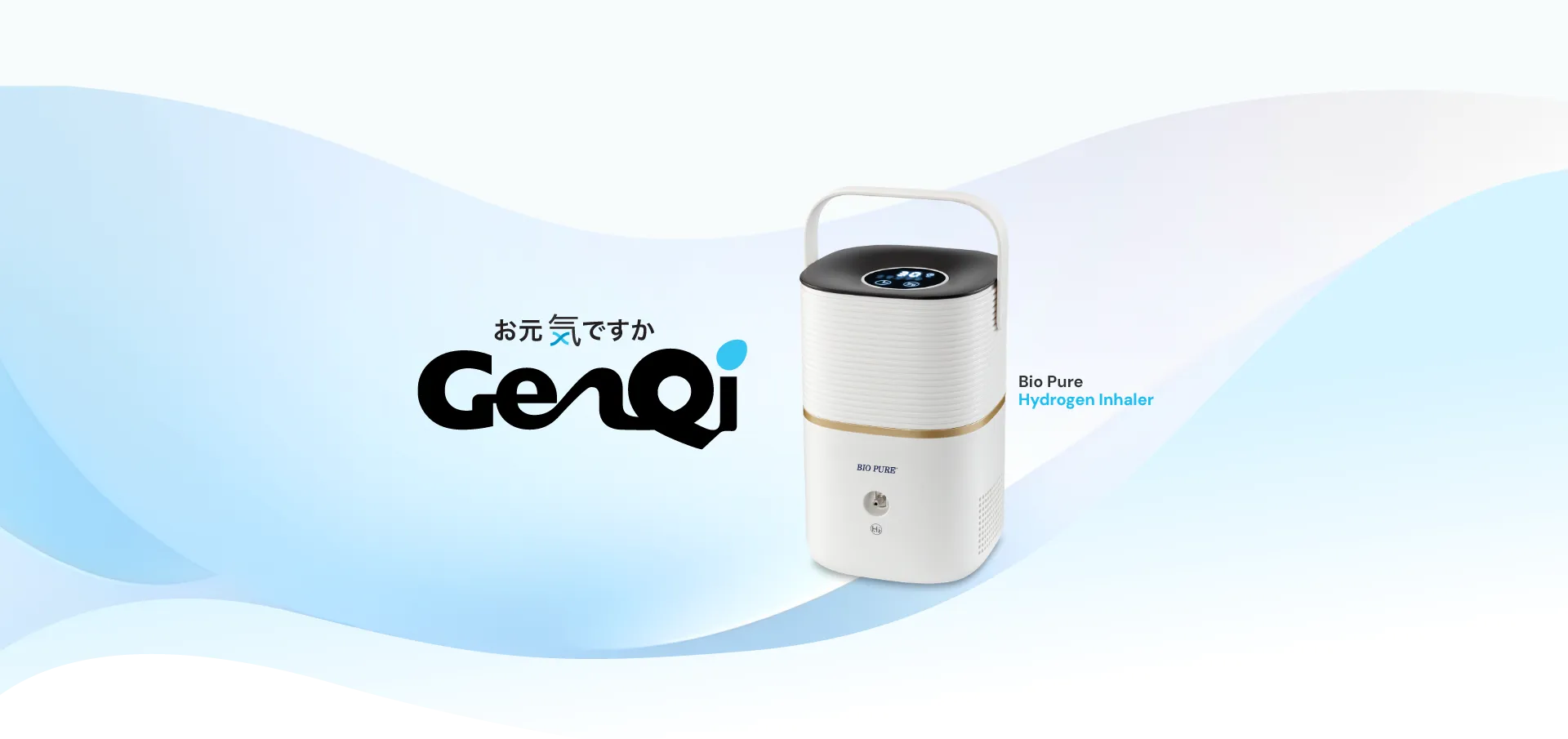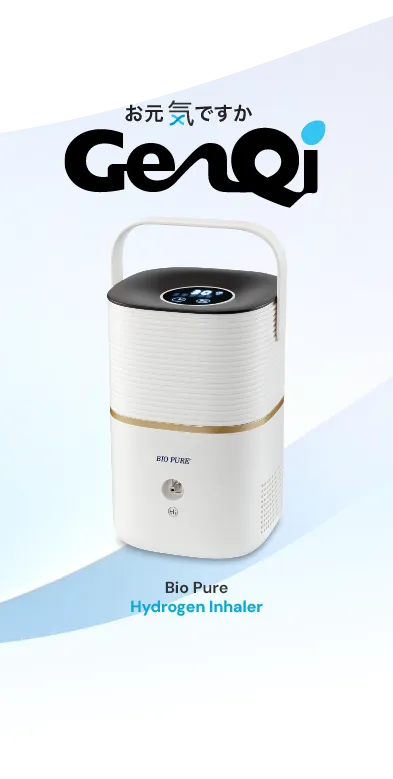

FAQ
Both act as antioxidants, but hydrogen gas is a “smart” and “selective” type. Free radicals can be classified into two categories: necessary and toxic. Vitamin C addresses all types of free radicals equally, while hydrogen gas specifically targets only the unnecessary and toxic ones, such as hydroxyl radicals. Unlike vitamin C, which might disrupt essential functions when taken in excess, hydrogen gas does not.
Hydrogen gas has several advantages:
- Safety: Hydrogen gas is generally well-tolerated by the body.
- Simplicity: Incorporating hydrogen is easy. Inhale it during leisure or replace regular water with hydrogen water are simple steps that can be taken toward wellness.
- Affordability: Hydrogen application is budget-friendly, imposing minimal long-term costs.
- Keep in mind that whilehydrogen gas may have potential benefits, they may not apply universally. Tailored health products or methods may be more suitable for specific needs. Consulting a healthcare professional is always advisable.
Scientific research has shown that inhaling hydrogen gas at a concentration of 2% yields the most optimal results for treating specific conditions. The Ministry of Health, Labour and Welfare in Japan has also included the inhalation of 2% hydrogen gas in their medical device guidelines. Safety remains crucial due to hydrogen’s flammability. While higher concentrations might enhance outcomes, without definitive evidence, extending inhalation time strikes a balance between safety and effectiveness.
Hydrogen gas is typically obtained through the electrolysis of water. Currently, a majority of hydrogen products available in the market utilise proton exchange membrane (PEM) technology to electrolyse pure water and generate hydrogen gas.
Since inhaling hydrogen gas requires a certain amount of time, it is often most convenient to do so while you are sleeping. Also, consider inhaling hydrogen while doing relaxing tasks such as TV watching, reading, or studying. This flexibility allows you easily integrate hydrogen into daily life.
Avoid using the device for too long during the first use. It is recommended to use for 30 minutes per day, and slowly extend the use time.
1-2 hours are sufficient for general health maintenance, while longer durations (4-6 hours) may be used for more intensive applications. Keep in mind that individual needs vary so it is advisable to consult a medical professional or hydrogen therapy expert for personalised advice.
Most of our customers say that they feel more relaxed, their nose cleared up and they can breathe easier. Others feel less muscle soreness after physical work or exercise.
When hydrogen gas is introduced to the body, discomfort might arise due to bodily reactions. Research indicates that these reactions, including increased blood circulation and altered brain excitability, can cause sensory changes. Typically, those in good health may not notice these shifts, but individuals with health conditions might experience stronger reactions. These responses are part of the body’s repair process.
No, hydrogen gas does not have any reported adverse effects when taken alongside prescribed medications.
No, any surplus is naturally eliminated through sweat or urine.
Hydrogen’s flammable range in the air is between 4% to 74%. To avoid the risk of combustion and explosion, it is recommended to inhale hydrogen gas at a concentration of around 2%.
No, clinical studies suggest that hydrogen is not addictive.
Bio Pure Hydrogen Inhaler is very energy-efficient, consuming only 60 watts per hour.
Note: 60W = 15 minutes of air conditioner usage
Distilled or purified water is required for the device to generate hydrogen for inhalation. A silicone tube is also required for the gas to be transferred from the device to your nose for inhalation. We do not recommend sharing the silicone tube.
If you are using the device in the car, you may need a car adapter, which is sold separately.
It is recommended to replace a new silicone tube every 2 months, or every month if the frequency of use is high.
The Hydrogen Inhaler is a smart device equipped with TDS detection. Using tap water is not recommended, as it may trigger TDS alarm and prevent the device from functioning. This feature is built-in to protect the internal electrolyser.
The device includes an intelligent low-water detection system. This feature will activate when the water level drops below 300ml, indicating the need for a water refill.
The device consumes approximately half a litre of water for every 40 operational hours.
The device will automatically cease operating. Refill it with distilled water to continue.
You have the freedom to engage in various activities such as office work, napping, watching TV, or reading books.
Please do not smoke while undergoing the therapy.
No, hydrogen gas inhalation, despite requiring a higher concentration compared to drinking hydrogen water, cannot replace the benefits of consuming hydrogen water.
The presence of water inside the new device is normal. The water inside the water tank is meant to protect the hydrogen module from damage. The water inside the water tank is distilled water and is safe for use.
It is recommended to use only distilled water. If the product has not been used for an extended period, it is advised to keep a small amount of water inside the water tank to moisturise the hydrogen production module. When reusing the device, simply refill it with fresh distilled water.
First, check the power cable of the unit. Additionally, inspect the tube where the gas flows for any potential blockages. If you continue to experience difficulties, please contact our customer service team, and we will assist you as soon as possible.
